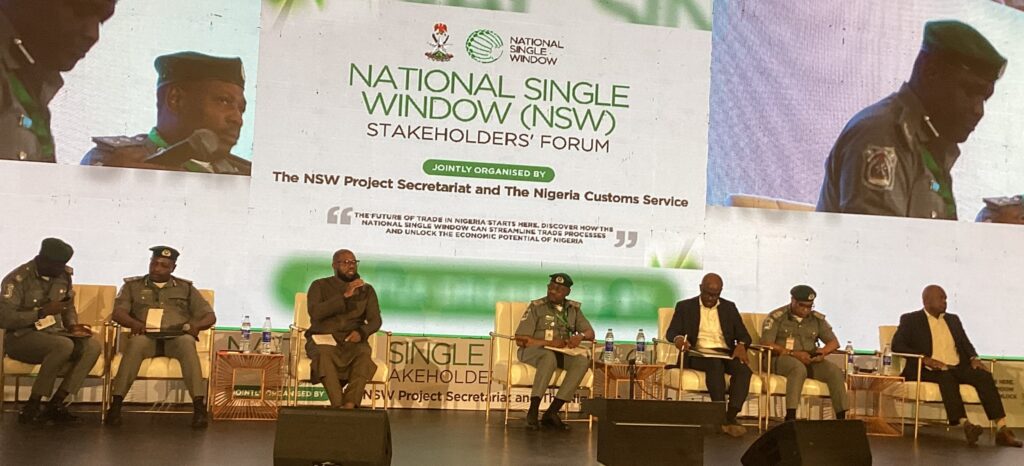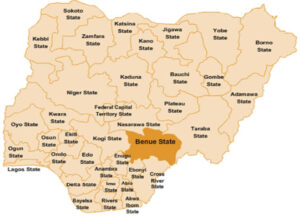Nigeria to revolutionise trade with launch of National Single Window

Nigeria to revolutionise trade with launch of National Single Window
Abdullateef Fowewe
Nigeria is set to revolutionize its trade and customs processes with the imminent launch of the National Single Window (NSW), a cutting-edge digital platform aimed at consolidating all import and export documentation into one streamlined system.
Video; Nigeria set to revolutionise trade with launch of National Single Window
National Single Window is set to be officially launched in the first quarter of 2026, a digital platform to streamline trade by integrating government agencies, aiming to reduce costs, eliminate bureaucratic hurdles, increase efficiency, and boost revenue and transparency in international trade.
Speaking on Thursday at the Project Stakeholders’ Forum held at Oriental Hotel, Victoria Island, Lagos, Director and Coordinator of the National Single Window, Tola Fakolade, outlined the imminent launch and expected impact of Nigeria’s NSW, a digital platform designed to streamline import and export processes, reduce costs, and enhance transparency across trade agencies.
Fakolade, described NSW as a “facility, a platform that allows importers and exporters to lodge standardised documents into a single entry point.”
He emphasised that the system will not replace existing agencies but act as a central conduit, integrating with all regulatory bodies to simplify and harmonize trade processes.
Fakolade explained, “A single window is a platform where all importers, exporters, all other private sector stakeholders, all their agents would use for all their import and export processes. The single window drives more transparency and efficiency by enabling real-time tracking of documents and approvals.”
He highlighted key benefits including simplification of trade procedures, data harmonization to eliminate multiple data entries, single document submission that routes paperwork automatically to relevant agencies, and centralised risk management to reduce physical inspections to about 10%. Fakolade added that the project aims to reduce Nigeria’s logistics costs to compete favorably with neighboring countries, stating the goal of achieving at least cost parity.
“We want to make Nigeria a trade hub. Our processes will be more efficient and cheaper,” he added.
The Registrar/Chief Executive Officer of the Council for the Regulation of Freight Forwarding in Nigeria (CRFFN), Kingsley Igwe, underscored the economic urgency behind NSW adoption, noting Nigeria’s strategic position as Africa’s largest economy but burdened by fragmented processes and high logistics costs.
He described the NSW as a “transformative solution” embraced by countries like Singapore and Rwanda, explaining, “The National Single Window integrates traders, businesses and agencies into one transparent, secure and interoperable ecosystem. Importers and exporters can process documentation once with instant recognition by all agencies payments, compliance checks and cargo release happen seamlessly with reduced human interface.”
Igwe called for collective action from all stakeholders, stressing that success depends not just on technology but “trust, collaboration and transparency,” urging the private sector, government agencies, banks, and service providers to embrace the platform fully.
“The time to adopt this National Single Window is now. The cost of inaction is too high—more delays, higher costs, lost investment and missed opportunities,” said Igwe.
In his address, the Zonal Coordinator for Zone A of the Nigerian Customs Service reaffirmed the agency’s commitment to the NSW initiative and to improving port efficiency through modern tools and collaboration.
“The Customs Service is ready to partner. This is an opportunity for us to interact, ask questions, share ideas and move our nation forward,” he said.
The NSW Secretariat, in partnership with the Nigeria Customs Service, plans a phased rollout with a user acceptance phase and pilot testing before full nationwide deployment.
Stakeholders will be trained across regions, with licensed customs agents and freight forwarders required to register and create user accounts on the platform.




